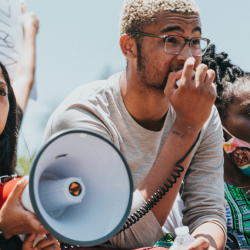June and July 2020 saw more than a 200% increase in the volume of media and social media content calling for companies to be boycotted, suggesting that 2020 has been the ‘Summer of the Boycott’.
The spike in protests against companies has been the highest since April 2018. These have covered an unprecedentedly wide range of issues being used to attack companies, against the inflamed backdrop of Covid-19 and Black Lives Matter.
This huge leap is, I believe, a clear manifestation of the growing post-Covid tendency towards naming and shaming firms when they are seen to be breaking the social contract.
But, there is something else going on here – we are seeing a fundamental change in the way that companies approach boycotts. Some actively embracing consumer action against their brands as a way to give them a platform to position the company and its beliefs.
Turning protest into platform
alva’s report, ‘Boycotts in the Covid-19 era: Are these now a reputational opportunity?’ also revealed that the top three boycotted companies during that period were Twitter (45% of all boycott posts), Goya (27% of all boycott posts), and Facebook (14% of all boycott posts).
These companies and many more enjoyed an initial honeymoon period of support and praise for their altruism in the early phase of Covid-19. However, there is a sense that they are no longer able to have things all on their own terms.
If we look at the top issues to cause boycotting, they are broad and heterogenous: Twitter and Facebook’s slow responses to anti-Semitism/hate speech; the Goya CEO’s support for Trump; Starbucks’ support for the Seattle Police Department; and Chick-fil-A’s support of anti-LGBTQ causes. There is no single catalysing event that is driving the activism.
This is a very different picture to the spike in boycotts two years ago. These were mainly caused by only two major incidents. First, the tragic Stoneman Douglas High School shooting in Parkland Florida and secondly, calls for Starbucks to be boycotted after two black men were handcuffed and arrested by police in Philadelphia.
From boycott to buycott
We can also see more instances of the ‘boycott-buy-cott’ dynamic – where a firm is both vociferously antagonised (boycott) and advocated (buy-cott) for its stance on a single issue.
Indeed, Goya Foods was targeted by activists following an appearance in the White House Rose Garden by Robert Unanue, the company’s CEO, in which the executive praised President Trump.
But as boycotters took to social media to drum up support for the move, an equally vigorous buy-cott of Goya products from supporters of Mr Unanue and President Trump quickly followed, as did crowd funded campaigns to purchase the company’s products to donate to food banks.
And herein lies the opportunity. Taking a stand may result in a groundswell of support, mobilising vocal advocates of a company and strengthening ties with important stakeholders.
Indeed, a boycott provides a platform for a business to assert its position on a given subject and to reinforce what it stands for and why, even if this stance is unpopular in some quarters.
As firms increasingly attempt to adopt or enhance differentiated positions on a variety of social issues from diversity and inclusion to climate change and gun control, a boycott represents the testing of a stated position and may actually provide the opportunity to show evidence of the sincerity with which that position is held, especially when short-term revenue is potentially on the line.
While it can be deeply uncomfortable to be on the receiving end of a boycott, in today’s climate, it should no longer be unexpected. Nor should it be seen as a risk to be avoided – but rather an opportunity to walk the talk on what a company really stands for.
Featured image: Hiram Rios / Shutterstock.com































